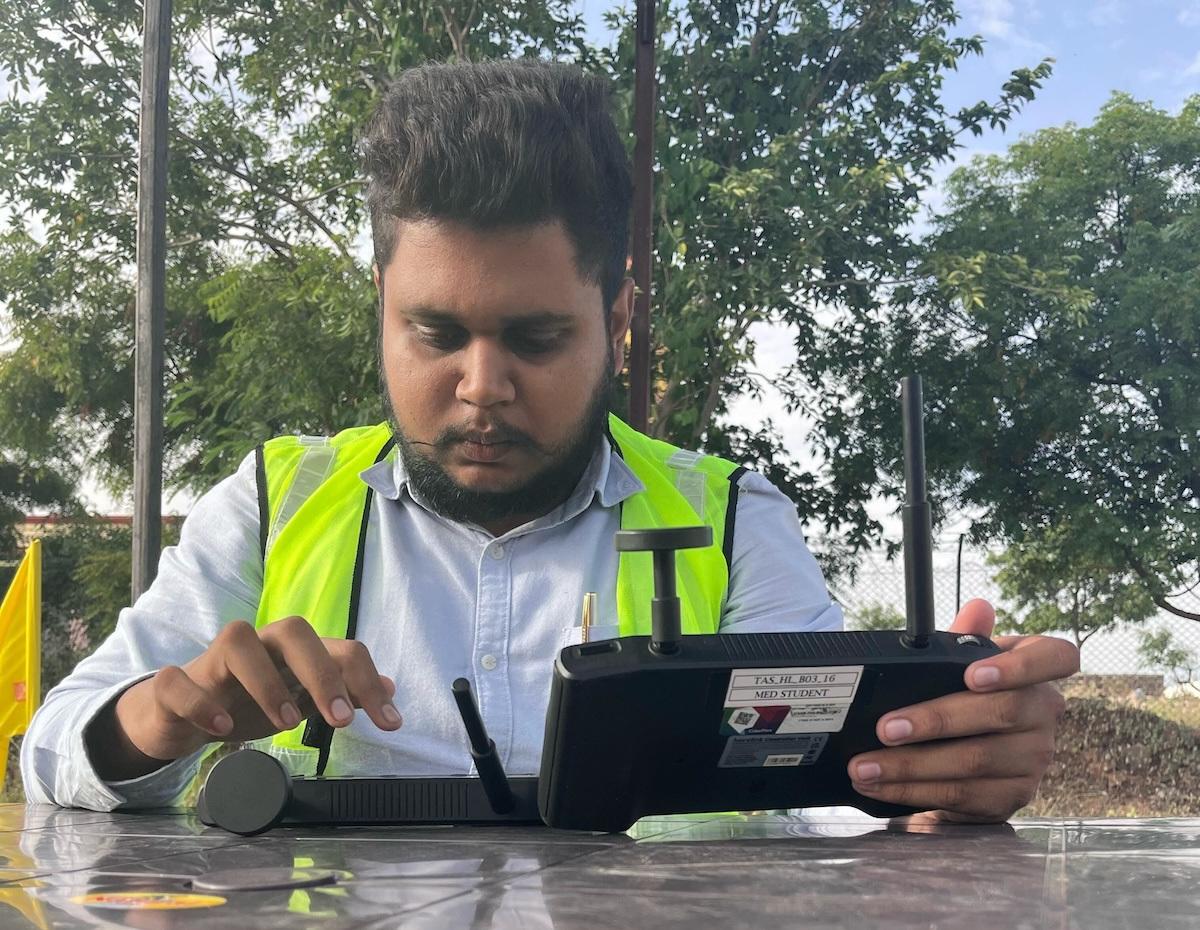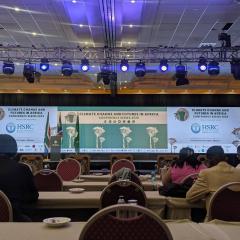
Expanding Opportunity through True Accessibility in STEM Training
May 8th, 2024

When Amit Lal first joined India Flying Labs as a 16-year-old volunteer, he already possessed the skills to build, fly, and operate drones. A laudable feat, to be sure. Little did he know that this was just the beginning of his journey. Now an aircraft maintenance engineer and trainer, he shares that this was but a stepping stone to a great impact on the lives of youth in various parts of India.
India Flying Labs' drone training programs opened new vistas of understanding for Amit. As their online and hybrid formats welcomed participants from diverse backgrounds, he saw firsthand the power of inclusive education. Yet, the stark deficit in access to knowledge, especially in rural and underprivileged communities, continued to gnaw at Amit and his colleagues.
The Fly for the Future program presented an opportunity to confront this challenge head-on. Tasked with reaching out to communities in secondary cities as part of the program, the India Flying Labs team reviewed and refined their training materials and skills in the hopes of empowering youth who were often left behind in the gap between emerging technologies and local communities outside metropolitan areas.
The impact was remarkable! In communities where drones were once seen as distant concepts, either tools of entertainment or military activity, the youth were now learning about their potential applications in everyday life. Through the Fly for the Future program, the participants gained hands-on experience with drones and knowledge of uses for social good. Beyond technical skills, they also developed a broader understanding of technology's role in society. Their mindsets were changed, Amit notes, and the seeds of innovation and possibility were planted.
They were very interested, asking, ‘Could we do this or that? Can we use drones in our villages for these purposes?’ The next time we reached out to them again, the students in those villages came to us, sharing their ideas and feedback about drone use.
— Amit Lal, India Flying Labs
But feedback from their community engagement efforts revealed gaps in their training approach. Many of the participants who lived in the villages where they conducted trainings did not own mobile phones let alone have any experience with drones. The majority had limited access to formal education and proficiency in English, which presented a challenge to the effective delivery of the training. Amit realized that language was part and parcel of accessibility. What does it communicate to a local community when the knowledge they need to solve their challenges is not available in a form they can understand? True accessibility and true democratization of knowledge meant breaking down linguistic barriers and translating their STEM training to local languages such as Hindi and Marathi. And so, thankful that their team’s multilingualism allowed speedy adaptability, they did.
Another obstacle to accessibility emerged in the level of training they offered. Whereas before they trained professionals already within the drone industry, such as pilots, developers, and data analysts, their students were now everyday youth with no prior knowledge of emerging technologies. Amit and his colleagues learned to recalibrate their training to accommodate their participants. They simplified their training components and emphasized foundational concepts. What seemed daunting at first soon became proof of what we can achieve when we treat accessibility as a necessity rather than a nice-to-have.
People are willing to accept technology in general but it’s all about the cost and accessibility. If we can solve these barriers in our training, people will be happy to accept it.
— Amit Lal, India Flying Labs
Still, it wasn’t just about language or simplicity. It was also about the cost and scope of the training. Before they could embark on teaching drone coding using different interfaces, they needed to raise awareness about the uses of technology to set a solid foundation. Furthermore, they needed a holistic approach to their training, transcending mere technical skills – just as important as knowing how to build drones is understanding ethical considerations, recognizing the power of the internet, and building digital literacy.
When we started conducting training at a village level for underprivileged youth, I realized that we need to develop simpler training components that cover not only drones but also the ethical uses of the Internet and how they can use it to find online training and courses for more information and knowledge.
— Amit Lal, India Flying Labs
For Amit, the most profound impact of the Fly for the Future program was witnessing the transformation that true accessibility makes possible. Although formal education has overshadowed practical expertise in India for a long time, a shift is underway, with more people encouraged to prioritize skills and hands-on experience, especially in the field of emerging technologies. Amit now sees the potential for true inclusivity in STEM, through programs that open doors for underprivileged youth outside metropolitan centers to seize the opportunities presented by technologies such as drones. As some of the youth they trained launch businesses, providing services such as drone spraying to farmers and companies, Fly for the Future’s mission of empowerment is coming full circle. And as Amit witnesses the rise of innovative solutions in communities once overlooked, he is reminded of the power of accessible and inclusive education.
When we teach people from secondary cities or places far from the advanced cities, we are enabling them to become future drone pilots or entrepreneurs, which will also contribute to the growth of the industry.
— Amit Lal, India Flying Labs
The impact of STEM/Youth programs reaches beyond technical training. True accessibility represents the promise of a more equitable society. With the learnings from his experience as a Fly for the Future trainer, Amit is even more driven to help reshape the future of India’s drone industry by equipping its youth with the skills and knowledge they need to walk through the doors of economic empowerment.
Recent Articles

